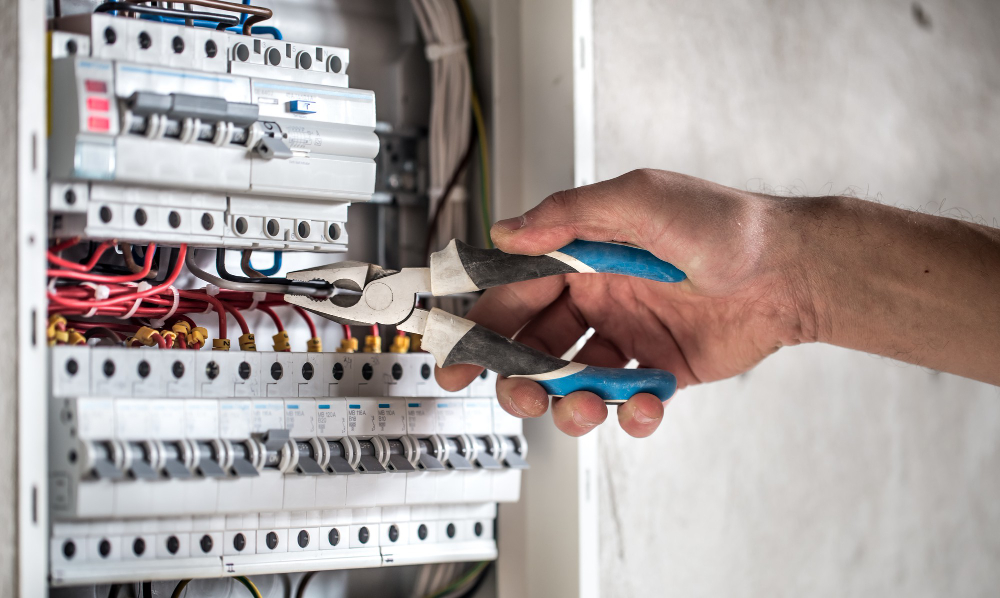Your electrical panel also called your breaker box, controls all the electricity in your home. It receives the electricity from your utility company, then distributes it to each of your home’s circuits. The circuits in turn supply power to all your outlets, lights, appliances, and other electrical devices. Your electrical panel is your control center, allowing you to turn off power to sections of your house when needed.
However, it’s much more than a switchboard for you to control your home’s power; your electrical panel has several important functions to keep your home safe and your electrical system running efficiently. The right electrical panel upgrade can keep your family safe and allow your system to keep up with your needs. How do you know when the time has come to upgrade your electrical panel? Read on for some telltale signs.
1. Your Home is Older
As our reliance on technology has increased, so has our need for electricity in our homes. Computers, entertainment centers, and air conditioners were not common in older homes. Consequently, their electrical panels were not designed to handle the load we are asking of them. A house built in the past perhaps had an electrical panel with a power rating of 60 amps, while a new house today may have a power rating of 100 amps or 200 amps.
2. You Don’t Have Enough Outlets
If you find yourself using extension cords regularly, that means your home doesn’t have enough outlets to meet your needs. An extension cord is designed to provide power when it’s needed for a brief period of time. For example, you have a party and need to put a lamp outside for the evening. When used heavily, extension cords can wear out quickly and may become fire hazards. So instead of creating a tripping hazard with a network of surge protectors and extension cords, upgrade your electrical panel and add more outlets to your home!
3. Your Panel is Full of Fuses, Not Circuit Breakers
It is possible that older homes may have fuse-based electrical systems instead of circuit-based ones. Whenever a circuit breaker is overloaded, it will “trip”, halting electricity flow safely. Fuses melt, blow, or short-circuit when overloaded, which carries a small risk of fire.
4. You Are Frequently Tripping Breakers
If you find yourself constantly having to go to your breaker box after tripping a circuit breaker, upgrading your electrical panel will end this problem. Circuits trip frequently when the electrical panel is old and worn out or malfunctioning. It can also mean that your old panel can’t handle your energy needs.
5. You’ve Upgraded Your Home and/or Appliances (or plan to)
Your electrical panel was designed to meet the energy needs of your home as it was when it was constructed. If you’ve built an addition, turned the basement into livable space, or otherwise significantly increased your demands, you most likely need an upgrade so your electrical system can keep up. Adding lots of modern appliances can also draw a great deal of power, so if you’ve finally gotten a dishwasher or a clothes washer and dryer when you didn’t have one before, you may need an upgrade.
6. Your Electrical System is Overloaded
Constantly overloading your electrical system not only makes it perform poorly, it’s also a safety hazard! If your electrical system is struggling to keep up, you will most likely notice some of these signs:
- Lights flicker frequently
- Lights dim when an appliance turns on
- Breakers trip or fuses blow frequently
- Some of your outlets are singed
- You smell burning around a switch or outlet
- Outlets emit sparks when you plug or unplug a cord
- You get shocked when plugging or unplugging cords
Right Electric
Don’t waste your time trying to solve the air conditioning issues yourself! Contact the professionals at Right Electric here or at our phone number 908-568-8000

